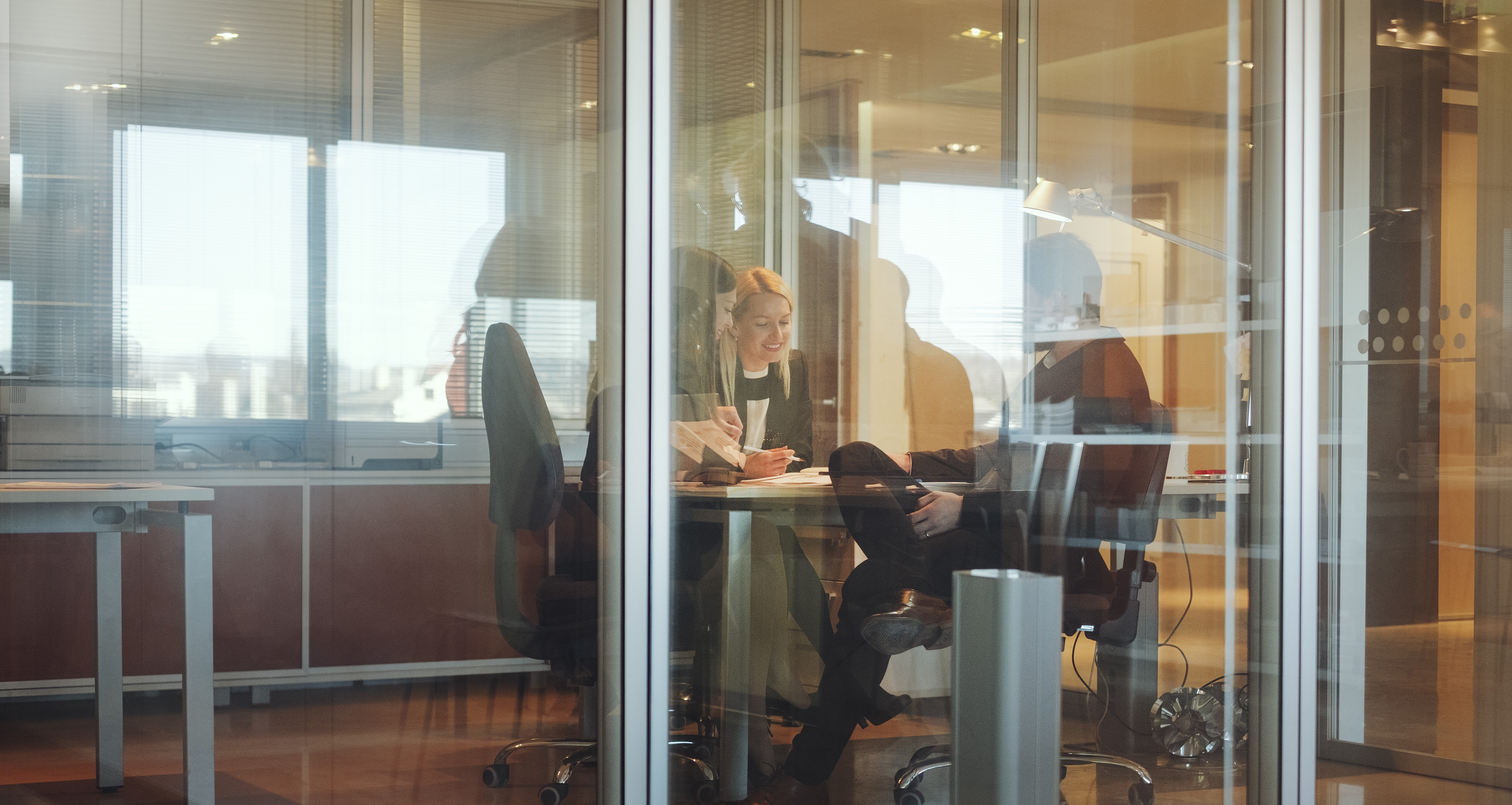Every year, our firm looks forward to celebrating Earth Day. In years past, we’ve celebrated in ways big and small. Some years we’ve volunteered at local farms to help cultivate land and clear debris, and others, we announced our firmwide commitment to become Carbon Negative by 2030. In honor of Earth Day and the work we do that goes well beyond a day dedicated to the health of our planet, we caught up with three women on our Environmental, Social, and Governance (ESG) team to learn more about their perspectives on the growing impact of ESG on the marketplace, and what each and every one of us can do now to make a big difference for our planet.
Below, hear from Seattle-based Senior Solutions Consultants Audrey Kriva and Jessica Ginger, as well as Charlotte-based Senior Solutions Consultant Brittany Decker.
When did you first find your passion around ESG?
Jessica: My passion is rooted in the social aspect of ESG through volunteer work with marginalized communities. It began with what was then called Special Education at my high school, followed by mentoring adjudicated youth as an AmeriCorps volunteer during university. I followed that experience up with a 27-month Peace Corps service in Moldova and solidified my passion for this work while managing programs and partnerships across Africa and the Middle East throughout the latter half of my twenties.
Brittany: Since childhood, I spent long days outside exploring my dirt road neighborhood in South Florida on my bike. My family went to North Carolina in the summers where I explored waterfalls, swimming holes, and rugged mountain paths. I knew I wanted to do something to protect the environment since then. I studied political science in college, recognizing that the need for policy changes was essential to preserve this planet. While I gained some experience in public policy, nonprofit work, international projects, and beyond, I found myself drawn to work with businesses whose activities impact so many around the world. The actions of one corporation can have a ripple effect on societies around the globe and I believe it’s essential that we help businesses learn how to operate as a force for good.
Audrey: I found my passion in college, where I led the creation of a sustainability initiative called DormMania to recover usable furniture and dorm items during campus move-out in the summer and re-sell them at discounted prices during campus move-in in the fall. Closing the loop on resources this way, I knew that I wanted to be a part of creating new ways of doing business that decouple economic prosperity from resource consumption.
What has been your favorite ESG customer project thus far in your career?
Jessica: Throughout the last 10 years I have supported companies ranging from small-to-medium enterprises to our world’s largest retailers and consumer goods companies. These companies ranged in ESG maturity – some genuinely wanted to get it right and others clearly wanted to “check the box”. With that in mind, and the fact that I love a good challenge, I have to say my favorite ESG customer project to date with Point B has been with a customer in the construction industry. We conducted a baseline ESG assessment to help them understand how their actions measure up to increasing consumer expectations, their peers’ actions, and evolving regulations. It was a pretty straightforward deliverable, but is my favorite because we were able to show them where they are at risk of losing their competitive advantage in the market by not prioritizing a more intentional ESG strategy. And the project ended with the CEO requesting a proposal of Point B’s services to get moving on the recommended roadmap, which was a great boost of serotonin!
Brittany: I really enjoy working with brands who are not doing these activities to check a box or satisfy investor needs, but rather, are truly motivated to make a change. We are working with a US-based skincare brand that embodies this completely. Senior leadership is motivated to do better and, as a subsidiary of a much larger corporation, there’s a a lot of potential to make a big impact. Our scope of work with them has been large, including a baseline ESG assessment, materiality assessment, GHG inventory, reduction scenarios, supplier engagement, their first impact report, and more!
Audrey: I’ve loved working with a grocery retailer who sources product “opportunistically” from food that would otherwise be wasted. We were engaged to perform a holistic baseline ESG assessment last year and are currently in the process of setting ESG goals and writing their first ever ESG report. I love working with a customer who has ESG values and circular economy principles built right into their business model!
What are your tips for incorporating positive ESG habits into our daily lives?
Jessica: Here are my top 5:
- A quick daily change: Turn off the lights when you leave the room and don’t run the water nonstop while brushing your teeth or doing the dishes.
- Additional small changes: Minimize or even eliminate plastic from your kitchen and stop using paper towels. I promise you can do it! I eventually found no need for those items and save money by not having to regularly replace them. Also, I cringe when I see plastic food containers because of the harmful chemicals that can seep into your food if microwaved or washed in a hot dishwasher. Slowly replace those with safer, more durable yet still recyclable materials like glass.
- A mindset shift: Prioritize quality over quantity (i.e. buy less). When you do make a purchase, try to select products that have clearly labeled certifications or claims. For example, a certain percentage of the product or packaging is made with post-consumer recycled content, seafood that is certified by the Marine Stewardship Council, as well as items that are Fairtrade, BPA-free, low toxin claims, etc. These certifications and claims aren’t perfect, but retailers and brand manufacturers are monitoring our spending habits. We can all add to the positive data trends!
- How to positively influence your organization: Always ask if the solution addresses the root cause of the issue, and whether a representation of all stakeholders affected by the issue was included in creating the solution.
- Check yourself at the check out: When you see an underpriced product, remember that likely means someone in the supply chain wasn’t paid adequately. Ask yourself: is this in line with my values?
Brittany: Here are my six go-to tips!
- Make daily changes that positively impact the world. There are always small things that every consumer can do to try and minimize their impact. Take public transport, bring your own containers or cup to restaurants, fly less, eat less meat, use reusable shopping bags, to name a few.
- Educate yourself about the brands you buy. Take the time to do research about the companies where you most commonly shop. Learn about where they source their materials, the impacts of those materials, what kind of standards they hold their supply chain to, and how they are interacting with ALL their stakeholders (employees, shareholders, environment, communities, supply chain, customers, etc.) to minimize their negative impact. If you learn things that you don’t like, don’t shop there.
- Vote with your dollars. Once you have more information about brands you do and don’t agree with, be strategic about where you spend your money. Your dollars enable companies to continue the practices that they currently have in place. Ask yourself, do I feel good about perpetuating this company’s behavior? Do I really need this product? Am I trying to spend less on a product that will break and/or be useless to me in a short period of time? Or is this something that I will use often and will last me a long time?
- Get active in public policy. Many of the systems that our society currently operates on are broken. Learn about public policy candidates and their stance towards protecting the planet and underrepresented populations. Support them and new policy proposals that will yield better results for all. Learn about how the companies you shop from engage in public policy as well. Are they making policy commitments that align with your values?
- Find out what your own employer is doing. As we’ve seen, the effects of one organization can have a ripple effect around the world. What is your employer doing to address their impacts? Ask these questions and work and see if you can start (or join!) a movement with your own employer.
- Band together. No one person will be able to solve all these issues alone. Find organizations that are doing this work and join forces with others on the mission. Approach those who may disagree with you with love and empathy. Saving the planet should not be a politicized issue, we’re all in this together. And together we can achieve great things.
Audrey: One of the things I love about doing corporate ESG work is that we have the opportunity to influence systemic change – changing a company’s plastic policy rather than simply buying a product in cardboard, for example, or helping a company advocate for climate-positive legislation. My tips are simple ways that people can advocate for systemic change:
- Call your representatives.
- Attend neighborhood events.
- Join a march or rally!
- Subscribe to hyper-local sustainability newsletters so you can stay up to date on issues in your own community.



